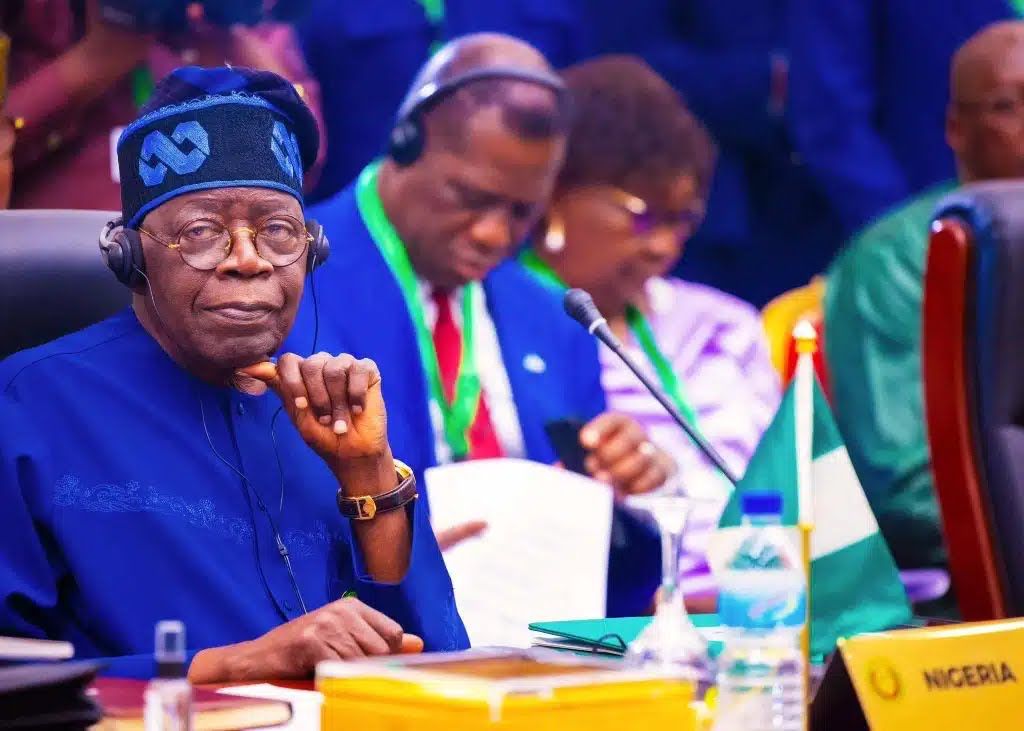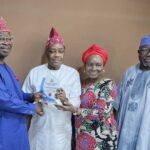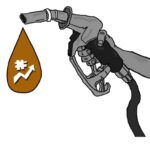At the ECOWAS Summit in Bissau on July 9, 2023, President Bola Tinubu was elected Chairman of ECOWAS. In his acceptance speech, he warned that the threat to peace in the region had reached an alarming proportion with terrorism and an emerging pattern of military takeovers that ECOWAS must take concerted action addressing with the urgency the matter demands.
Shortly after, he was in Addis Ababa for the African Union Summit. His first action point as ECOWAS Chairman was establishing the Presidential Troika + 1 (Talon – Benin, Embalo – Guinea Bissau and Bazoum – Niger + Umar Tourray, President of ECOWAS Commission) to develop an immediate action plan to address terrorism and coups d’état in West Africa.
The four presidents met in Abuja on July 18 and drew up plans to engage Mali, Burkina Faso and Guinea on expeditious return to constitutional rule, credible and inclusive elections. They also proposed a pathway to an expeditious Operationalisation of ECOWAS Revised Plan of Action for the eradication of terrorism in West Africa.
This action-man approach by President Tinubu is raising hopes that Nigeria is now ready to assume once again its traditional leadership role in West Africa, which the country has abandoned for almost two decades.
For years, my West African friends have been asking me when will Nigeria return to her role as the leader that organised successful interventions in Liberia, Sierra Leone, The Gambia, Sao Tome and other countries. It was in Mali in 2012 when violent extremists were marching to takeover Bamako, the Malian capital, that the absence of Nigeria was deeply felt and the French had to move in to provide security in the Sahel.
- Strange disease kills 5 in Kaduna community, 10 admitted
- Flood threats: Amnesty Int’l urges Nigeria to act now to save lives
Of course, the French failed and have been chased out of many Sahelian countries. Nigeria may not have the resources and strength it had decades back but it still has a capacity to mobilise and initiate significant action.
I am part of a group of experts working with ECOWAS/UNDP in developing a Resilience Strategy for ECOWAS and we met earlier this week to develop our workplan. My view is that the history of ECOWAS demonstrates the importance of respecting rights and deepening democracy if regional integration and human development are to be promoted in West Africa.
When ECOWAS was established in 1975, by two pals who were Generals and Heads of State, Gowon and Eyadema, they thought that what was needed was a club of dictators built on the then-sacred principle of non-interference in the internal affairs of other countries. They believed that governance would continue in the old way and they as dictators would protect and cover each other. They were wrong.
Misrule had already set trends of authoritarianism breeding resistance and revolts in many countries. They were also losing control over their own armies as West Africa became the coup headquarters of the world. General Gowon himself was overthrown about six weeks after the establishment of ECOWAS.
The original sin of authoritarianism and bad governance by ECOWAS as a club of dictators has created a society that had become difficult to govern.
Youth agency had grown dramatically by a new generation marked by living precarious lives that decided to benefit from the massive spread of small arms and light weapons to respond to State terror by civil terror. The age of self-help had arrived. The result was the erosion of State authority and the growth of violent extremism, spread of criminality and banditry and the explosion of farmer-herder crisis in almost all the countries in West Africa.
The big story in West Africa – both the Sahelian and Gulf of Guinea parts, became the decline of good governance, peace and security. Both states and regional institutions could no longer do their jobs – promoting the security and welfare of citizens. Trust collapsed and the social contract between States and citizens broke down.
Meanwhile, ECOWAS had developed a security architecture covering a wide range of areas that involve kinetic and non-kinetic operations including the conflict prevention framework, preventive diplomacy, the Regional Plan of Action on Fight against Terrorism 2020-2024 and the ECOWAS Standby Force on Fight Against Terrorism. The challenge that remained was making these instruments operational.
West Africa has a high vulnerability to conflicts. It has many of the poorest countries in the contemporary world. It is riddled with identity conflicts organised around ethnicity, religion and citizenship. The region has fratricidal struggles for resources in land, minerals water and pasture.
The zone is also characterised by population dynamics with a high birth rate and the creation of a youth bulge that the society is unable to adequately cater for. This was the context that created conditions in the last three years for the return of instability and military coups, itself provoked by democratic regression and the abuse of incumbency powers of executives currently in power in many West African countries.
The challenge today is developing a strategy for building resilience through improved genuinely democratic governance systems and more effective conflict management strategies in the region.
The greatest promise is the strategic use of the ECOWAS normative asset – the Supplementary Protocol on Democracy and Good Governance that embodies the constitutional convergence principles as a normative instrument to deepen democracy and rights for the peoples of West Africa.
The instrument can be improved for better effect. Improving and using the instrument could serve the strategic objective of creating the pathway towards fixing the breakdown of the social contract between the State and citizens. The building of resilience could therefore be the renegotiation of this social contract in favour of the people.
I wish President Bola Ahmed Tinubu success in running the affairs of ECOWAS. One challenge he faces is the growth in the importance of globalisation and big power rivalry with the war in Ukraine and the battle by China and Russia to counter the West, a battle in which West Africa is at the centre of the whirlwind.
West Africa must remain focused on its own interests and avoid blind support to one power block. The rise of BRICS and transformation of the global order is very much in the dynamics of pathways to resistance and resilience and how we are able to negotiate it to our advantage is crucial.

 Join Daily Trust WhatsApp Community For Quick Access To News and Happenings Around You.
Join Daily Trust WhatsApp Community For Quick Access To News and Happenings Around You.



